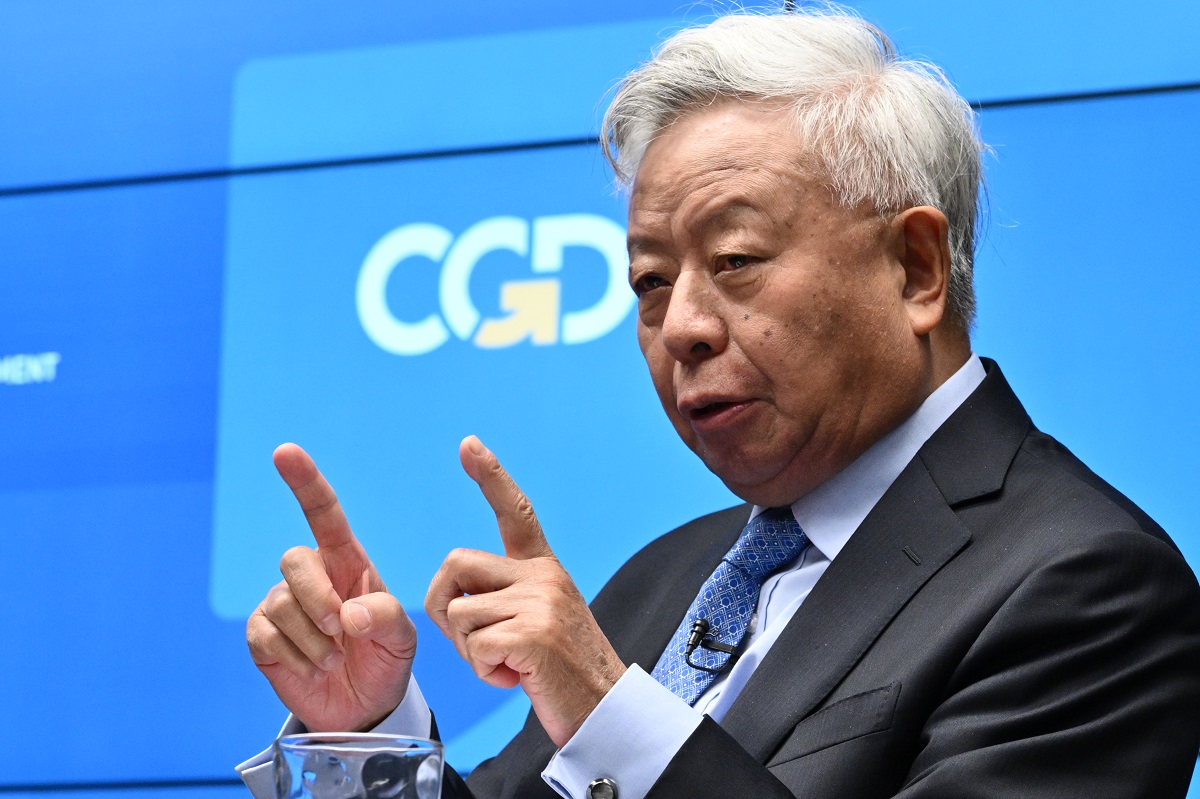This week, as world leaders meet in Washington, DC for the Annual Meetings of the International Monetary Fund and World Bank, they will be discussing ways to reduce global poverty and inequality.
At the Center for Global Development we're addressing the question, what are the next frontiers in global development? That’s why we’re hosting events this week exploring hot topics and trends that are challenging development experts to think outside the box and changing the development landscape, including China’s Belt and Road Initiative, the EU and UN’s new Spotlight Initiative to end violence against women and girls, how societal platforms like Aadhaar are changing development, best practices for developing countries implementing universal health care systems, and what we can do to address the newest challenges facing the global humanitarian system. You can learn more about these events and RSVP here.
CGD's experts across a range of issues will also be paying close attention the Annual Meetings.
Here's what they'll be watching:
Will the World Bank’s capital increase campaign be a success? Scott Morris has been keeping an eye on the World Bank’s campaign for a capital increase, but the United States has policy concerns about increased lending at the Bank, with specific skepticism about the Bank’s continued lending to large emerging market countries, like China.
Will the world take action on Myanmar and the Rohingya refugee crisis? Cindy Huang is calling for an international package for Bangladesh – similar to the Jordan Compact that is helping to address the Syrian refugee crisis. She says that for this package to succeed it must include assistance for the 800,000-plus Rohingya refugees now in Bangladesh, as well as provide robust support to the communities hosting refugees. It also must go beyond aid, including components like reducing trade barriers and facilitating private investment in Bangladesh.
Scott Morris is also watching this issue closely. The Bank has provided $2 billion in assistance to the government of Myanmar since 2010, and now a top United Nations official has said the Myanmar regime is perpetrating a “textbook case of ethnic cleansing.” Morris is raising important questions, including “how much certainty does the bank have that its projects are safeguarded against abuses in Myanmar today, that no projects are enabling discriminatory treatment toward the Rohingya population?” and "is the World Bank and major donors willing to use all the tools in their toolset to address the crisis, including sanctions?"
What will the World Bank’s new strong stance on the tobacco tax mean for developing nations? There are about 6 million premature deaths each year from the tobacco epidemic, and that number continues to rise. Two-thirds of those deaths are in developing countries. That's why Bill Savedoff has been working for many years to get the World Bank and the international community to support a tobacco tax. The World Bank is the only international organization of its scale that regularly works with Finance Ministries and has a mandate to improve health worldwide.
This week, the Bank published a new report that shows how tobacco taxes could have a major impact on global health (summary here). It states strongly: “There is a policy measure that can simultaneously save millions of lives, reduce poverty, and increase countries’ domestic resources for financing development. The policy measure consists of increasing excise tax rates on tobacco in order to reduce its affordability and, as evidence shows, lower its consumption... The report sets forth the public health, economic, and anti-poverty case for higher tobacco taxes; shows how some countries have already delivered ambitious reforms; and documents measurable results. It shows that, by implementing tobacco tax reforms now, policy makers can choose a fast road to healthier, more prosperous societies.”
At the Annual Meetings, Bill and I will be participating in discussions of this strategy to combat the tobacco epidemic and save lives with World Bank President Jim Yong Kim, Mayor Michael Bloomberg, and other high-level officials from across the globe.
Stay tuned to @CGDev on Twitter and sign up for our email updates to stay informed about what happens at the Annual Meetings.
CGD blog posts reflect the views of the authors, drawing on prior research and experience in their areas of expertise.
CGD is a nonpartisan, independent organization and does not take institutional positions.




